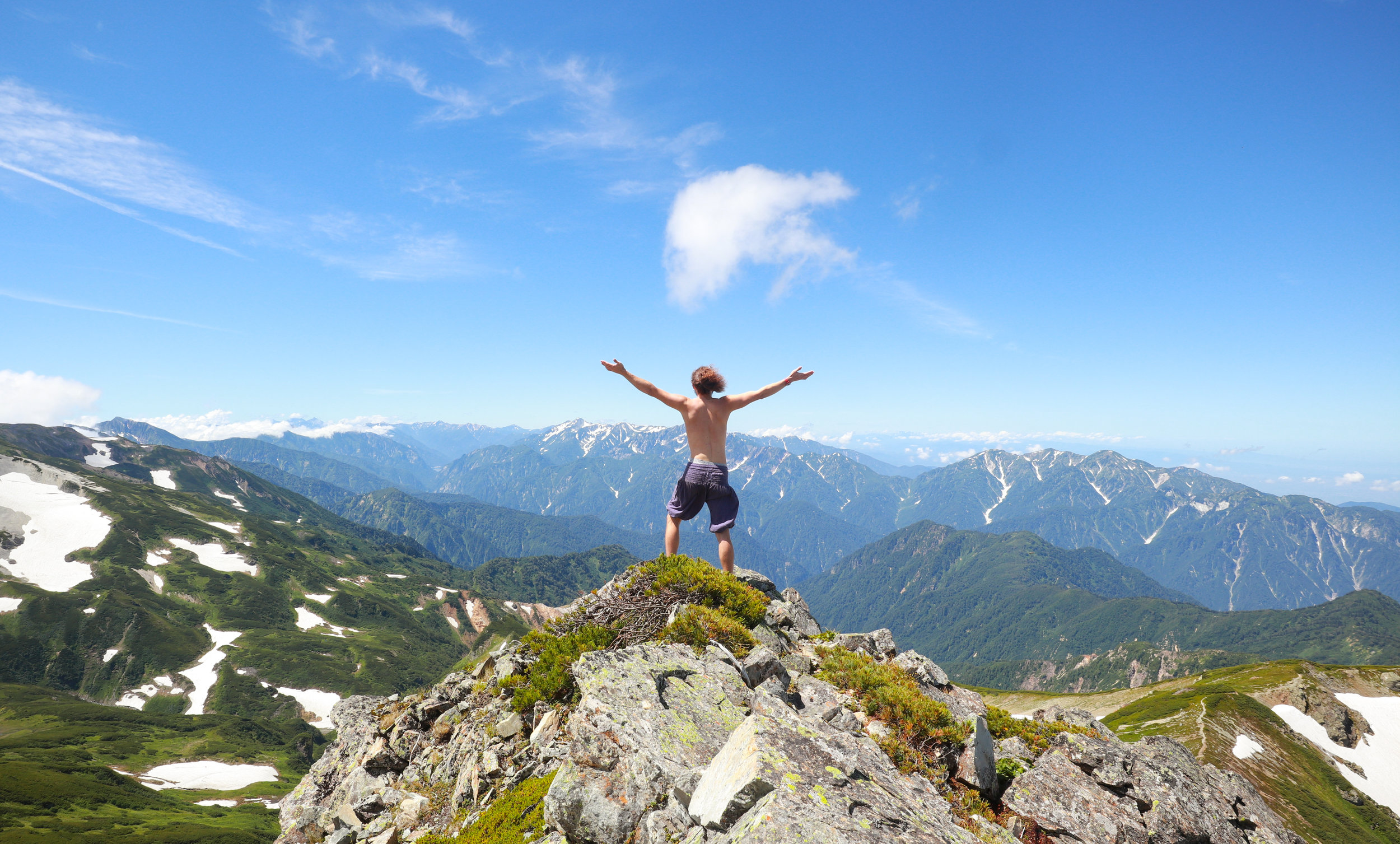
THE BLOG
8 Must-Know Minimalist Camping Tips
Camping a lot over the past year and half has taught us some valuable tips for how to travel comfortably yet with minimal gear.
8 Must-Know Minimalist Camping Tips
As nomadic minimalists, we prides ourselves on travelling light; for the sake our backs and our budget.
But you may wonder how on earth do we camp, despite not owning a vehicle of any type, and travelling often via hitch-hiking?
During our 2 years in Australia, when we have set-up home in a hostel or a house-share, we do gain a few more kitchen/cooking items and other random living things, which we promptly ditch and donate when we move on again.
We accept that there will be some amount of pain involved in lugging around our entire lives plus our home (a 2 berth tent) plus an inflatable bed (and pump), but we try to make it as easy as we can.
In the UK, we camped a lot, and thankfully we had a car to fill with kitchen-ware and other gear, but it always felt like a such a task preparing all the stuff, ticking off check-lists and ultimately feeling weighed down, when camping was supposed to be a simpler and cheaper way to experience travel.
Over the last 2 years traversing the East Coast of Australia we have picked up invaluable knowledge on how it is certainly possible to camp, without a car, as a frugal and nomadic minimalist.
The two main fundamentals are: having a comfortable tent, and the baggage room to carry your accessories.
Its not about adding lots of separate bulky baggage and thus needing another two arms attached to your body in order to get from place to place.
These 8 minimalist camping tips will help you travel and camp without the aid of a vehicle and without completely sacrificing comfort!
DON'T PICK A TENT TOO BIG OR TOO SMALL
We made the initial error of purchasing a quality tent which also happened to be the size of a coffin when you insert two people and their two rather large backpacks. The tent was very much designed for short-term hiking, not potential week-long camping stays.
We returned this one, purchased a slightly larger tent, and have never looked back.
With our bed inside there is still room at the foot for your shoes etc plus a small separate zipped compartment for other items.
I still occasionally lust after tents with more stand-up room but they are so much larger and heavier, when really you will only use that headroom a when entering/exiting the tent.
Don't try to save weight by buying a tiny tent, or add tent room by buying a bigger one;go for the tent that you can happily sleep in or sit in during bad weather.
We found out the hard way by spending a week in this 'coffin'...
CARRY GROUND-SHEETS
We have had a couple of incredibly annoying incidents where the ground water seeped through our tent and not only damaged the bottom of it, but also made everything inside super wet. This is pretty uncomfortable to deal with when you are already tolerating bad weather during a camping session and so you need to keep the tent as dry inside as possible.
We carry two tarpaulins which just about cover the tent's footprint. We place both underneath covering the length and width of the tent, with a little poking out the front to leave our shoes on throughout the day. It keeps the tent base cleaner, protected from the various terrains we pitch on.
However this has in the past created some pooling which has made the tent wetter inside than it might have been without the tarp, as our floor material is a thin and non-waterproof material...in this scenario, where the ground is hard/concrete (and thus has minimal drainage) you might want to skip ground-sheets.
You could also use the tarp as the base for a cooking or picnic area outside your tent if the weather or ground is dry.
These tarp's easily roll-up and attach to the outsides of our bags and due to their small size, they really do not add extra weight.
When you invest in a decent tent, naturally you want to protect it, and so we really recommend this tip in order to maintain the integrity of your new home.
CONSIDER WHERE THE SUN WILL RISE
Australia is unsurprisingly hot, and as soon as that bad boy rises in the morning, your tent will become an oven, which can make a nice leisurely lie-in an impossibility.
We don't necessarily select a shaded spot from the get-go, but instead, we consider the path of the sun and where it will rise in the morning and try to cook us.
To help you do this you can actually download an app onto your phone, and we specifically use Starchart which you can hold up and fast-forward the clock on it to see where the sun will rise the coming morning!
The great thing about camping is often the pattern you fall into of sleeping as the sun sets and waking when it comes up, but let's be real, you won't always feel like seeing every single sun-rise.
TRAVEL WITH MINIMAL FOOD
We tend to rely on buying our meal supplies in the local area in which we camp, so we tend to steer away from carry oodles of fresh ingredients. We do however carry dried foods (pasta/rice/noodles) and sauce sachets, in the event of getting to our campsite at night and needing an easy meal to prep.
We don't carry heavy items like olive oil (we often borrow fellow campers) or bulky items like cereal. We carry all of our foods in a re-usable fabric shopping bag (just from the local supermarket) and so we have to be selective about what snacks we carry. We tend to favour snack bars, banana's and packs of multiples like crackers or nuts.
Be prepared to go without your absolute favourite foods each day, and try to buy smaller portions of fruit/veg as these don't fair too great being taken in and out the fridge (plus they are often heavy).
USE COMBINATION LOCKS
You will never regret carrying a couple of these babies around, not only handy for when you are staying in a hostel without personal lockers (or with them) but for when you are leaving your tent unattended all day.
We tend to lock up valuables in one of our big backpacks when we head out, and we also lock the zipper on the tent with a 2nd combi-lock.
It might seem extreme and also utterly pointless as any determined thief will rip through the mesh to get to the goods, but, in many places you feel safe or comfortable enough to leave valuables in your tent around other campers, and so this is merely for piece of mind.
I do have some trust in those around me but I still cover my own back and deter the opportunist or nosey!
UTILIZE CAMP KITCHENS
Many proper camp-sites in Australia will have a camp kitchen for tent campers, often equipped with a fridge, cooker and basic other items like a kettle and toaster, possibly even some utensils.
If you are tempted to carry a camp-stove, several gas refills etc be aware that you may end up just using these kitchens and render those other heavy and bulky items useless.
MAKE USE OF CARABINER CLIPS
This is just a general tip for carrying backpacks and extra gear but we love to use these to help attach our tent and other specific camping bits onto our packs.
Handy for attaching sleeping bags, tarps and even a snorkel kit, these maximize the external surface area of your large backpack.
HAVE A SPARE BLANKET
You probably think this kind of bulk negates the whole minimal camping idea, but, Australia does get chilly from time to time, and even a warm day can turn cold with a swift breeze, so you will benefit from carrying a lightweight blanket in addition to your sleeping bags.
This can surely beat carrying several hoodies/jumpers, thick socks, joggers and other bulky items, or so we have found!
This is useful for multiple purposes, as either a throw over for sitting around the fire, or it can be rolled up as an extra pillow. We found that some nights we were so cold in our tent it was great to have something to wrap up in to make a quick trip to the bathroom, or to pull over the top of our thin sleeping bags.
The reality is that camping can be, shall we say, stressful for a couple whom spend all day, every day in one another's company.
Many miles from home, sharing a tiny space with your other half 24/7, is the struggling part of camping that you cannot minimize.
Nonetheless we try not to get too angry at the little things and not worry over the small stuff, like sand in the tent, or mess, or a less than stellar washing up job.
The beauty of camping is in the relative freedom of being to create your own private little home in a matter of minutes, in a myriad of different and beautiful settings. Plus the budget savvy nomadic minimalist is always looking for ways to get close to nature and in the thick of the travel atmosphere without it costing too much.
We do try to balance out our trip with hostel stays, couch-surfing and air b'n'b's along the way to prevent all out war occurring however!
Camping can be such a bonding and relaxing experience if you focus on enjoying the sunrise waking, the animals sniffing around at 3am, the birdsong and the fresh air moving through your tent that beats any air-con.
Thanks for reading!
Hannah and Taran here. We hail from Southern England, where we met online and are now realizing our mutual passion for travel here at Nomad'erHowFar. We discuss Nomadic Living, Simplifying your Life and Long-term Travel, to empower, motivate and inspire our readers. Get to know us here!
Be social and come follow us across the virtual world!
Latest Posts:








